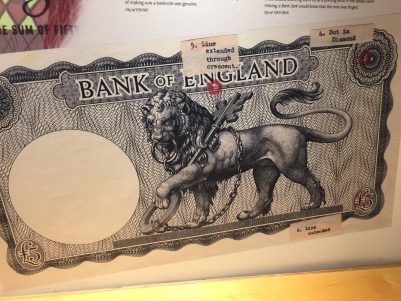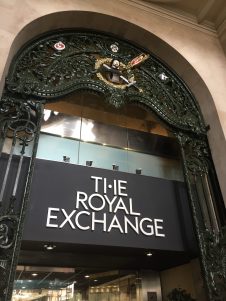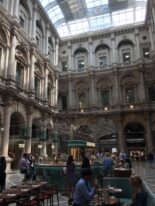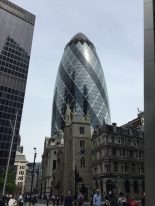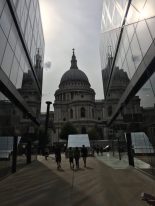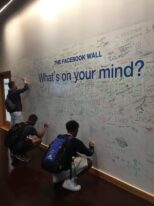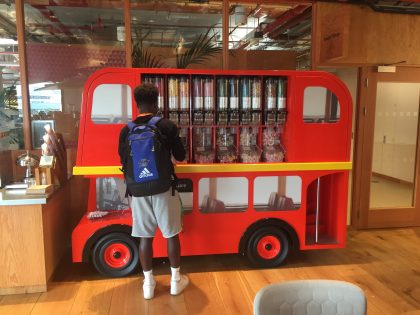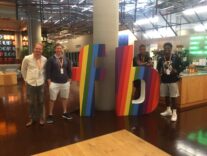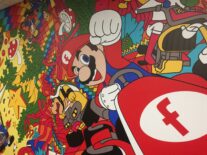What constitutes a business? What is the economy? How do business, economy, and business economics relate to one another?
During our first week of class, students of the Business & Economics seminar went about finding answers to these questions and explored the various definitions and links that exist between the economy and businesses and how these interact and influence each other. Our goal for the week was to understand and analyse the environment in which businesses operate nowadays, the role of the various stakeholders within that environment, and the role we play as citizens, consumers, and entrepreneurs.
To do this and to provide more context to our exploration of the economic and financial world surrounding us, the class went on a day excursion to the City of London—one of the world’s major financial hubs—and followed a guide around the city, stopping at key institutions and business to learn more about how they came to be, their evolution, and the role some still play to this day. We discovered, for example, how the first Stock Exchange, the Royal Exchange, was created and the important role it played at the time in the local economy—and how this has shaped the City of London into becoming one of the major players in the financial world.
By looking at the past and analyzing the old ways of doing business—from exchanging and bartering goods and services at a local marketplace to the emergence of brokers, insurance companies, national banks, and money itself—students got an opportunity to understand the essence of business, its evolution and the role we play, as consumers, in the global economy.
Along the way, we visited the Bank of England’s museum and learned about its important role in maintaining monetary and financial stability in the U.K. This gave us the opportunity to explore some macroeconomic trends, the 2007 global financial crisis, the economic downturn that followed, and the measures and regulations governments and financial institutions have since put in place to avoid a similar occurrence from happening in the future.
Our final stop in London was at Facebook’s London Headquarters, where students were given the opportunity to talk to Facebook staff and to tour their offices. Needless to say, students were very impressed with the free snacks, drinks, and other freebies available to Facebookers and their visitors. The music and game rooms especially got a lot of traction from students to the point that some very important questions emerged from within the group: Do people at Facebook actually work? Why does Facebook pay their employees to play and eat all day? How does Facebook make money then? Thankfully (or maybe not), the staff was very quick to correct these misconceptions and to confirm that they do indeed work and that the infrastructure was there to support them in staying motivated, thinking outside the box, and overall being more efficient at work. So there was our first leadership lesson: treat your employees well, and they will take care of your business.
As we conclude this first week of seminars, students are now able to use tools and techniques to see and analyse the world in terms of macro- and micro-economic entities and the role that each of these entities (banks, business, government, customers, suppliers, etc.) play within the financial system and the larger economy. A change from one stakeholder or entity is likely to have a domino effect on how others can operate and do business. Knowing, anticipating, and reacting to these changes is and will be crucial to maintaining a flourishing business. And this will be the topic of our next class!
— Arnaud and the Business & Econ seminar


